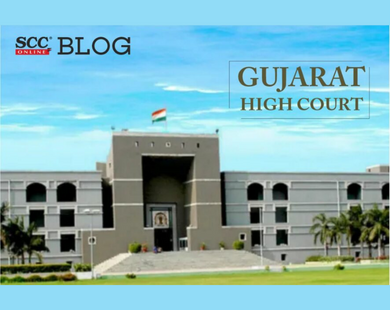Gujarat High Court: While deciding the petition, the bench of Biren Vaishnav, J., held that Commissioner of Police is under a legal duty to publish information specified in Section 4 of the RTI Act and the petitioner is entitled to know the rules framed under Section 33 of the Gujarat Police Act, 1951 to know the reasons by which the petitioner was denied permission to protest.
Background
The petitioner sought permission for peaceful protest against Citizenship Amendment Act, 2019, which was rejected by Police Inspector. The petitioner sought information from Commissioner of Police (the ‘Respondent') about rules under which the permission of the petitioner was processed and asked for the copy of the complete rules framed under Sec.33 (1) (o) of the Gujarat Police Act, 1951 (“the Act”). The request for information was refused. Thereafter, the petitioner filed this petition under Article 226 of the Constitution of India, seeking publication of rules framed by Respondent under Section 33 of the Act.
The counsel of the petitioner contended that not publishing the rules and orders framed under Section 33(1) of the Act are in violation of Section 33(6) of the Act as well as Section 4 of the Right to Information Act, 2005 (“RTI Act”).
Section 33(6) of the Act provides that rules framed under Section 33(1) of the Act are to be published in the local gazette and in the locality affected. Section 4(1)(b) of the RTI Act casts an obligation on the public authority to proactively publish 17 kinds of information including the procedure followed in the decision-making process, the norms set by it for discharge of its functions and the rules and regulations under control or used by its employees for discharging its functions.
The Court noted that
“Reading the preamble of the RTI Act, indicates that the Constitution of India has established a democratic republic. Democracy requires an informed citizenry and transparency of information which are vital to its functioning and to contain corruption and to hold Government and their instrumentalities accountable to the governed. There must be a harmonization of conflicting interest while preserving the paramountcy of the democratic ideal, in as much as, when revelation of information in actual practice is likely to conflict with other public interest including efficient operations of the government, optimum use of limited fiscal resources and the preservation of confidentiality of sensitive information certain information sought for by the citizen who desire to have it must be provided.”
The Court concluded that the respondent is under a legal duty to publish information specified in Section 4 of the RTI Act and the petitioner is entitled to know the rules framed under Section 33 of the Act, to know the reasons by which the petitioner was denied permission. Because in the absence of such knowledge, the petitioner will be handicapped in challenging such permission which will be a direct infringement of his fundamental right and a statutory right to know and access the law of the land which she violated.
The Court further said that desirous of seeking such information, especially the rules framed under Section 33 of the Act, the petitioner is entitled to a writ of mandamus for a direction to seek such information, especially when, it will help what is evidently the purpose of the RTI Act i.e. to receive information so as to know what is the procedure followed in the decision making process and the rules and regulations empowering such decision making process.
Hence, the Court allowed the petition and directed respondent to publish all the rules and orders framed under Section 33 of the Act on the website.
[Swati Rajiv Goswami v. Commissioner of Police, Ahmedabad, 2023 SCC OnLine Guj 164, decided on 17-01-2023]
Advocates who appeared in this case :
Counsel for Petitioner: – Advocate B S Soparkar
Counsel for Respondent: – Advocate Rohan Shah






